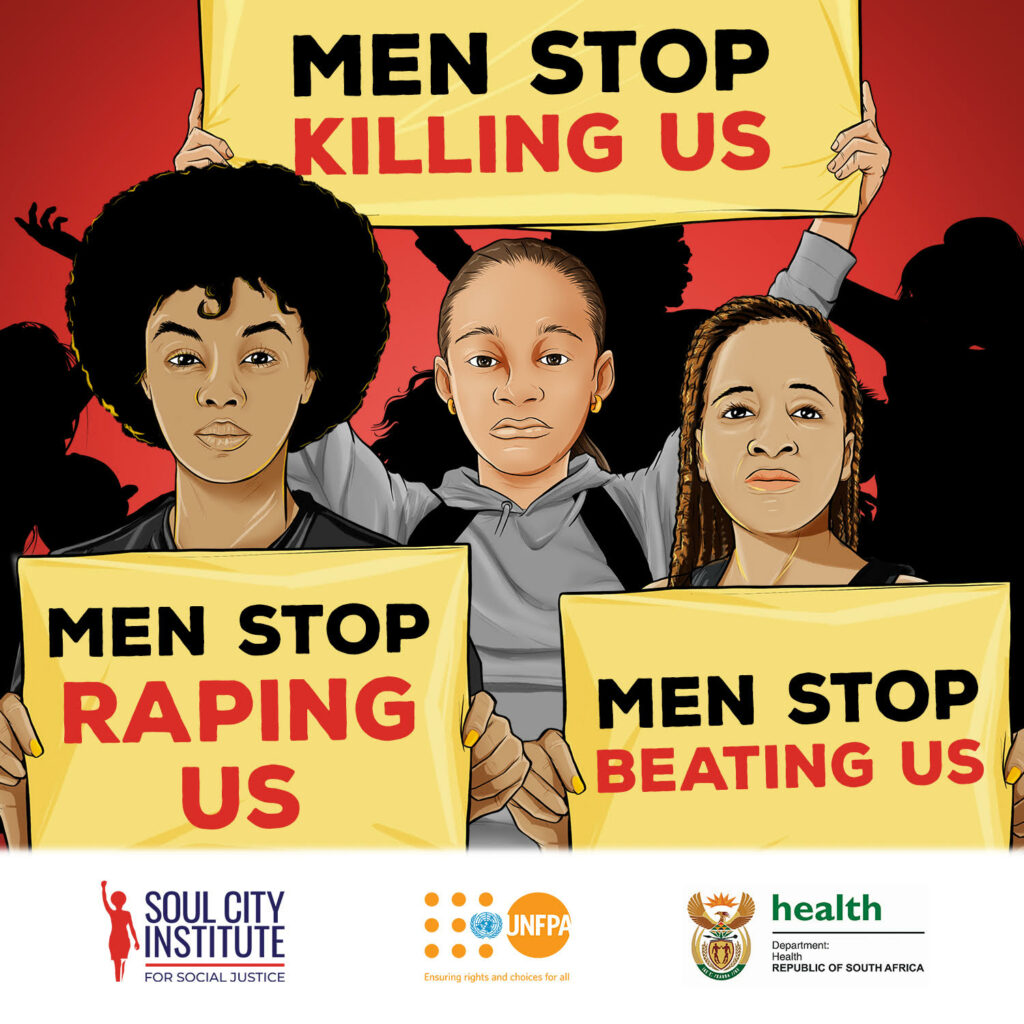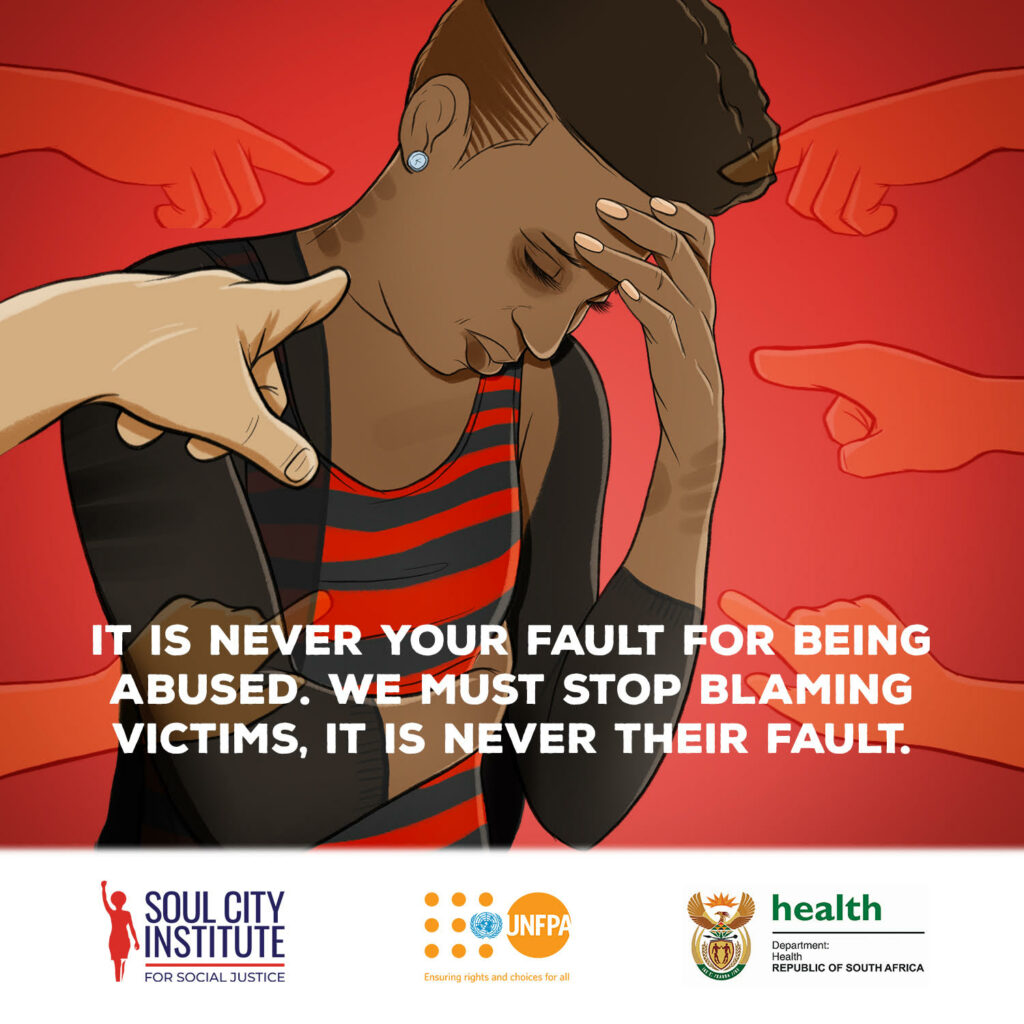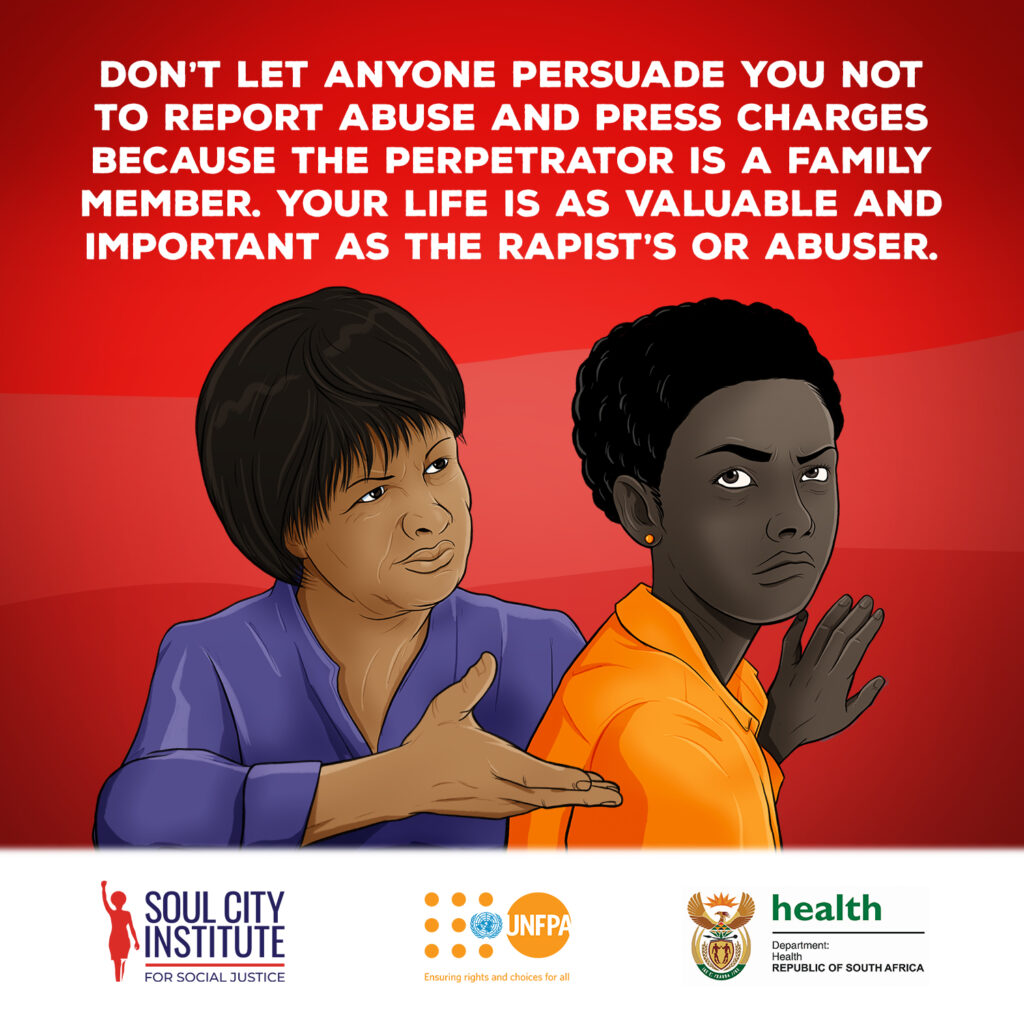Phinah Kodisang, Soul City Institute CEO. (Photo: Akona Kenqu)
The year 2020 marks 26 years of Soul City’s existence, in a period where the world is experiencing a pandemic that has forced all of us to do business unusual. Like everyone, the Soul City Institute found itself having to adapt to change in an effort to survive, grow, transform and maintain our competitive advantage in an environment filled with uncertainty because of Covid-19.
As we prepare to say goodbye to 2020, I want to reflect on the year that has been and how as an organisation we positioned ourselves to ensure that our work was not hindered by the Covid-19 pandemic.
We coined 2020 Soul City’s year of transformation. We went through a significant leadership transition: we welcomed the new CEO (myself) and two new board members — phenomenal young women with diverse skills and who are living with disabilities.
These appointments are in line with Soul City Institute’s strategic vision of inclusivity. True to our feminist principles, the organisation made a commitment to centre the care and wellbeing of our staff by appointing a black female-led EAP company, JDD Psyche Consulting, to provide the necessary support to our staff due to the impact that the Covid-19 lockdown has had on different people.
As an intersectional feminist organisation, Soul City Institute kept tabs on everything that was happening in our country with regards to gender-based violence and femicide (GBVF). We issued media statements calling for government to be responsive to GVBF cases such as Tshegofatso Pule’s, which continued to be reported.
The Soul City Institute’s advocacy team participated in a webinar hosted by the Democracy Development Program in partnership with Afesis-Corplan. The webinar focused on civil society’s response to the Auditor-General’s 2018/19 report on local government expenditure. The objective is for civil society to put together a submission to demand accountability and action on the Auditor-General’s findings. The submission has been finalised and Soul City has endorsed it.
The advocacy team also participated in the Department of Women’s launch of the 16 days of Activism campaign. The Soul City Institute also endorsed the GBV collective’s position to oppose the establishment of the interim trust on GBV.
Our key achievement for 2020 is the launch of our TV talk show – It’s a Feminist Thing, an unapologetically feminist talk show that started airing on SABC 2 at the beginning of November. The show is uniquely South African, and captures the zeitgeist of the contemporary South African women’s movement, which has patriarchy squarely in its sights. The show explores relationships between women, gives real expression to the ways that women love, support and empower each other, and reveals patriarchy’s divisive and destructive power.

During each episode, a Public Service Announcement (PSA) deals with the issues in that episode in a hard-hitting and provocative manner, which gets broadcast as part of the talk-show.
If you’ve missed the show, or just want to see it again, you can watch it on our website (visit: https://www.soulcity.org.za/media/its-a-feminist-thing-talkshow).
Major events that happened during this year for Soul City Institute highlight the importance of being agile in the space we work in. The context within which Soul City has been operating has significantly changed at the strategic level, mainly due to the Covid-19 restrictions. In order to remain relevant, the organisation redirected the social mobilisation work from face-to-face to radio and social media. We engaged local radio stations. We partnered with district-based radio stations in all nine provinces to reach as many young women and girls as possible.
Through these collaborations Soul City has potentially reached close to 800 000 listeners; we promoted messages about Covid-19, GBV, adherence to medication, prevention of teenage pregnancy, condom use and mental health, in line with our strategic communication content and our funders, the National Department of Health and the United Nations Population Fund (UNFPA). Our two PSAs that have recently aired on national and local radio stations may reach over 32 million listeners on national radio stations and close to 1.5 million listeners on community radio stations.
All of our interventions — including many which have not been highlighted here — are aimed at cementing Soul City as a change maker. We are changing the world today, creating the reality of tomorrow. We use the different platforms to give ordinary South Africans a chance to speak up, challenge norms, collaborate and build networks to create an environment that is non-tolerant of violence, especially violence perpetrated against women and girls, in all their diversities.
Soul City stands in solidarity with all women and girls, recognising that unity is a vital weapon in the fight against our common enemy: patriarchy. United we stand.
Stay safe over the holidays and try to always check in with your loved ones. Soul City has resources that can help: Safetipin is an app that you can download to check the safety scores for areas in your city, or you can provide safety scores so that other women and girls can benefit from your information. There is also a friendly bot called rAInbow that can help you with information on intimate partner violence and domestic violence.
As 2020 ends, let us not forget to always remain inclusive of people living with disabilities — especially women who are unable to access healthcare. I’m proud to be part of Soul City, which hosted the first-of-its-kind webinar with a sign language interpreter. These are the many ways Soul City wants to go into being more inclusive in the future.
May you have a very restful festive season, and Aluta Continua. It is Not Yet Uhuru. Remember to drink responsibly and stay safe on the roads. Don’t drink and drive.
Women and girls living with disabilities left behind the fight against GBV

The figures and incidences of gender-based violence in South Africa are staggering. It’s not unusual for the news cycle to be inundated with headlines of yet another woman who has been raped, assaulted or even killed by a man — in most cases by a man they know and one they’ve had an intimate relationship with. While the odds are stacked against most women in the country, women and girls living with disabilities face a double sword of discrimination and violence: one, for the simple fact that they’re women and the other — often ignored — for living with disabilities.
Lumka Sizani is one of those women. The 37-year-old mother from Green Village in Soweto has experienced discrimination from nurses to police officers as she navigates the world as a deaf person in South Africa. In a webinar hosted by the Soul City Institute, Sizani shared how she has struggled to access healthcare — particularly sexual and reproductive health services — in public health facilities and was failed by the justice system when she’s tried to report abuse at the police station.
“Where am I going to report my abuse? Who am I going to report it to? The police station is not accessible to me, there are no sign language interpreters there,” she explained. “Even if I were to be successful, what would happen in court? Would I easily access an interpreter?
According to a 2018 global study by the United Nations Population Fund (UNFPA), girls and boys with disabilities are mostly excluded from education and health services, discriminated against in their communities and trapped in a cycle of poverty and violence. Girls and women living with disabilities bear the brunt of these violations, as they face up to 10 times more gender-based violence than those without disabilities. Those with intellectual disabilities are particularly vulnerable to sexual violence.
The report, titled Young Persons with Disabilities: Global Study on Ending Gender-based Violence and Realizing Sexual and Reproductive Health and Rights, investigates and analyses the state and quality of life of young people with disabilities, with a particular focus on discrimination and gender-based violence, including the impact on their sexual and reproductive health and rights.
The report found that children with disabilities are almost four times more likely to become victims of violence than children without disabilities, and nearly three times more likely to be subjected to sexual violence, with girls at the greatest risk.
In another study, conducted by the African Child Policy Forum of violence against children with disabilities, nearly every young person interviewed had been sexually abused at least once — and most more than once.
Additionally, research has shown that children who are deaf, blind, autistic or living with psychosocial or intellectual disabilities are exceedingly vulnerable to violence.
Sizani has struggled with reporting being sexually violated her whole life. “When I wanted to report for the first time what happened to me, even my own mother told me to wait, because this would bring shame to my family.”

She had to rely on a close friend to take her to the police station, but it was hard for the police to help her. “I don’t have access in this country. My language — sign language — is not accessible in South Africa. It’s difficult to find interpreters to help me.”
It’s not just accessing the police that has been difficult and sometimes impossible for Sizani — going to the clinic for health services can also be an experience filled with discrimination. Two years ago, Sizani went to her local clinic for a check-up after she missed her period. While she was waiting in line, one of the nurses called her name and she had to communicate through writing down because there was no interpreter in the clinic. “I told the nurse what I was at the clinic for and she examined me. Indeed, I was pregnant,” Sizani said. “She asked me if I had any other children, and I told her I had three, and this pregnancy would be my fourth. She shouted at me for being deaf and pregnant with my fourth child.”
Shocked at the treatment she was receiving, Sizani said she felt that she was being judged, mostly based on the fact that she was deaf.
“It’s my body. I should be able to do anything I want [with it]. But the nurse didn’t think so, and she called other nurses to come and see that me, a deaf woman, is pregnant for the fourth time.”
Accessing sexual and reproductive health services is particularly challenging for young people with disabilities because of the attitudes of healthcare providers have towards them, particularly toward young women. Often healthcare workers are biased and discriminatory towards young people with disabilities such as Sizani and this results in stigma and prejudice toward their disability.
A 2015 study about South African women with disabilities who sought reproductive health services in Durban, for example, reported that healthcare providers asked inappropriate questions as to how and why they engaged in sexual activity and were not prepared to accept persons with disabilities as sexually active human beings. Much like in the case of Sizani, healthcare workers make assumptions about women with disabilities sexuality and ridicule them.
The participants also mentioned that healthcare providers are often surprised that they will need family planning services, and they are not given choices about suitable birth control methods. Additionally, health facilities are often inaccessible to persons with disabilities, making it difficult for them to obtain reproductive health services or forcing them to rely on the mercy of the providers and other healthcare users.
“I was judged for being a deaf woman with three children. The nurses did not respect that I was a sexually active and that I can have as many children as I see fit,” said Sizani.
Women and girls with disabilities continue to be excluded from mainstream sexual and reproductive health services. Communication barriers, the physical inaccessibility of health facilities and the attitudes of healthcare providers all represent significant barriers to young women with disabilities. “We can’t talk about accessibility without sign language being more accessible in public spaces — especially in health facilities and police stations. Women living with disabilities deserve better treatment than what we’re currently subjected to.”
For more information, click here